How India’s First Female Surfer Is Transforming a Little Village into a Paradise
Credit to Author: Shamani Joshi| Date: Wed, 10 Apr 2019 23:06:58 +0000
This article originally appeared on VICE India.
When it comes to the journey of India’s first female surfer, Ishita Malaviya, things haven’t always been smooth sailing. And no, it’s not because Hindu extremists got confused again and thought ‘surf’ stood for the controversial washing detergent ad, but because being the only Indian woman trying to make waves in a relatively unknown scene back in 2007 as a broke college student was tougher than nailing the hang ten.
More than a decade later, the 29-year-old has established the Shaka Surf Club in the small village of Udupi in south India with her partner Tushar Pathiyan, has been the brand ambassador for Roxy swimwear, and even made it to the Forbes Asia 30 under 30 list that came out last week. But this surfer is still in pursuit of something no title or trophy can achieve: integrating communities through the sport.
Acquainting with the Ocean
“When we first started out, people thought we had lost our minds, become beach bums, and were wasting our time,” says Malviya, who was first made aware of the surf scene in India in 2007 when she and her boyfriend were studying at Manipal University. A German exchange student they had befriended told the unsuspecting aspiring surfers about a Krishna ashram on a nearby shore, whose devotees were mainly from California and spent most of their free time riding the waves. “The ashram offered to teach us if we brought at least ten people, so we made a group and that’s when we first called ourselves the Shaka Surf Club (‘shaka’ is also known as the ‘hang loose’ gesture, associated with Hawaii and surf culture).” she says, “But every Sunday morning at 6 AM when we’d call our friends, they’d be too hungover, so it would just be the two of us.”
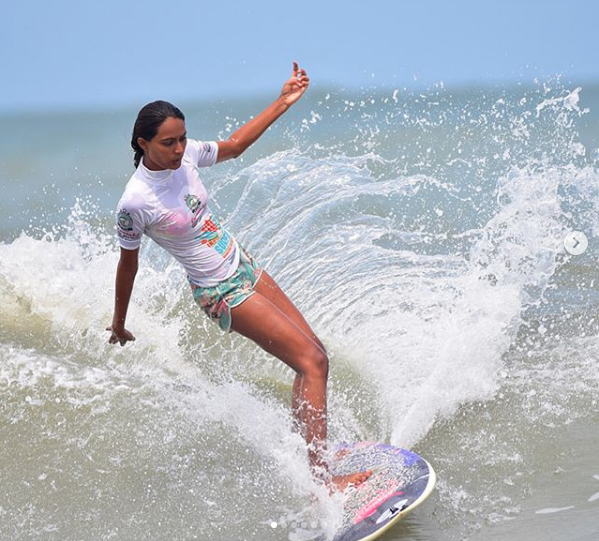
Pure motivation, though, was not enough to get their hands on their first surfboard. “I sold things like my sewing machine and an Ab Pro King exercise machine online, and Tushar would buy shoes from a shop in Mumbai and then resell them in Manipal. Finally, we managed to buy a secondhand surfboard and started sharing it.”
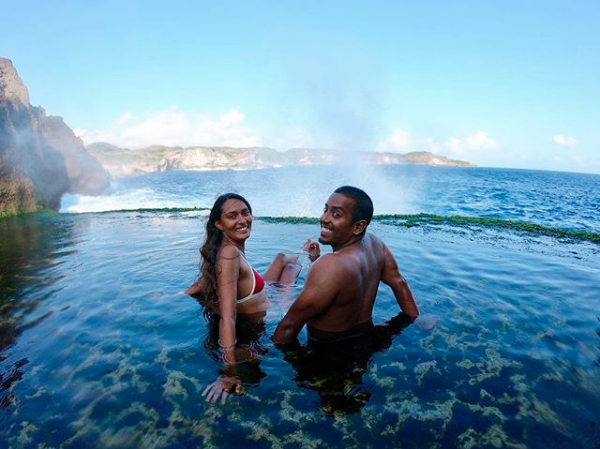
It’s all risen like the high tide ever since, but Malaviya maintains that despite all the difficulties she’s had to overcome—from weak upper body strength to her parents’ apprehension toward her chosen lifestyle to being told her tan will make her “too dark to be beautiful”—the waves have made it worth the ride. It’s this empowering feeling she takes away from the ocean that she’s on a mission to spread.
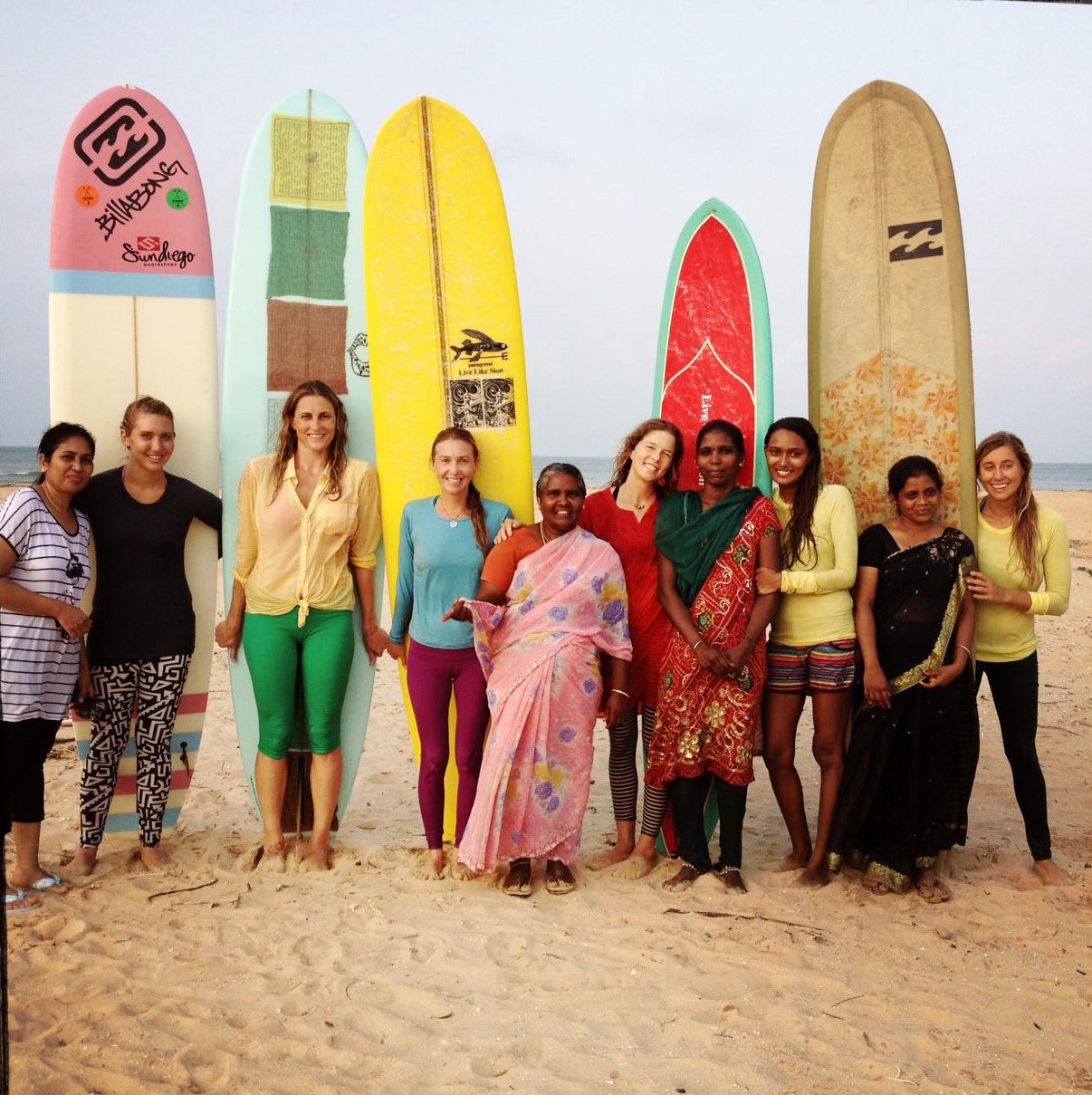
Dipping her Toes
Having set up shop in 2011 on the relatively obscure shore of Kodi Bengre beach in Karnataka—a village where even the fishermen didn’t know how to swim—Malaviya has actively taken efforts to expose the locals and their children to the world of riding waves. “The ocean was just a source of income for them; I wanted to make it a source of joy,” she says, talking about how the lack of awareness around sea safety had led to several drowning incidents in the area, leaving the locals scarred. In an attempt to push against that ingrained sense of fear and reservation, Malaviya took the locals under her wing, channeling their fascination of seeing something they had never seen before. “These kids were living in paradise, right by the water and playing cricket,” she says. Slowly, some of these kids agreed to put on life jackets and take lessons. They spoke Kannada, a language Malaviya did not understand. But accompanying her, English with sign language gradually led to the kids picking up pieces of the new language.
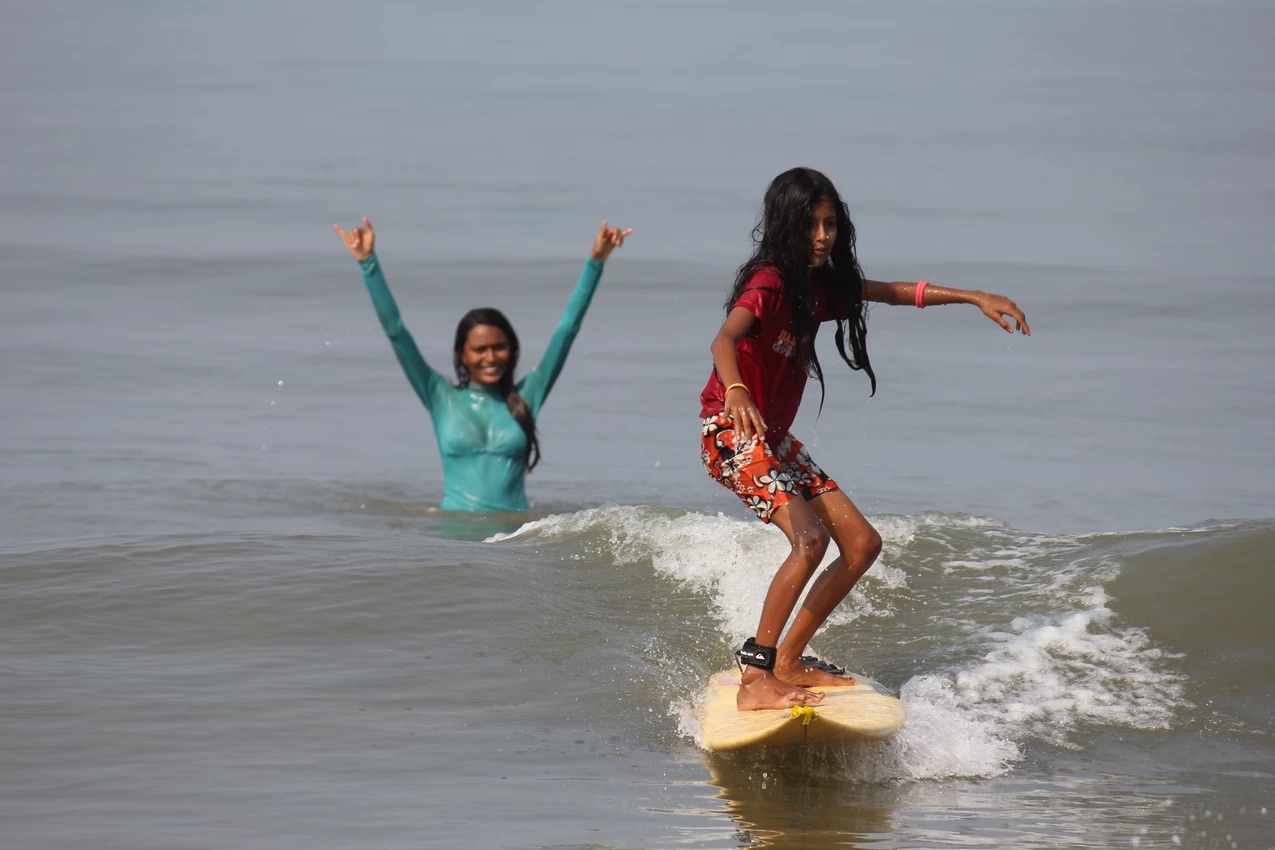
“If I still lived in Bombay, I probably wouldn’t have had an opportunity to hang out with a fisherman and his kids, but the beautiful thing about surfing is that it equalizes. You’re all the same in front of the ocean. The kids had this inferiority complex and thought they were ‘cursed’ to have been living by the ocean instead of a big city. But we wanted them to know how pristine and beautiful their place is, and how they should value it and be proud of it. We wanted to overcome any class divide and make it the coolest village ever.”
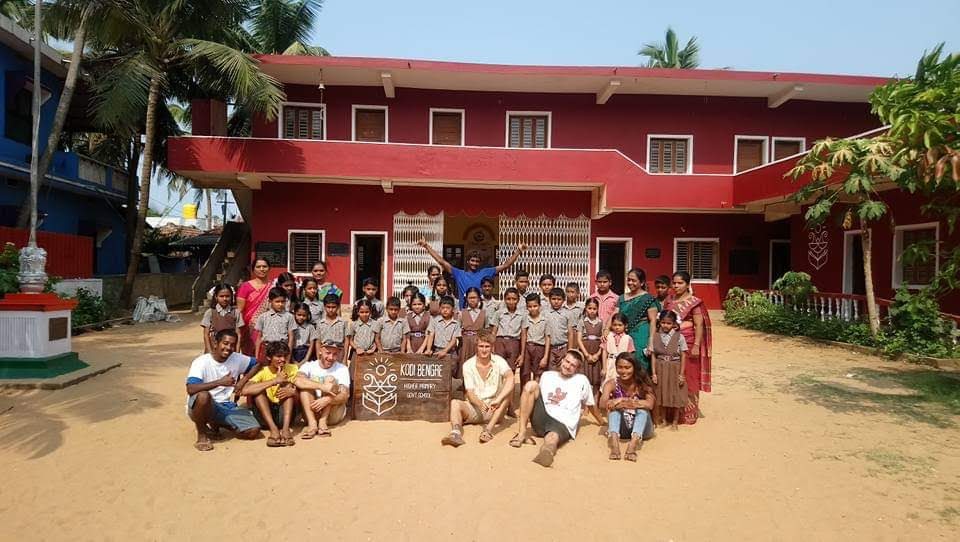
Diving into It
Today, the surf club has created a community and works to expose everyone living there to activities like breakdancing, skateboarding, yoga, and even Capoeira, inviting all visitors of the surf school to conduct workshops at the local government school and teach the kids stuff that is unique and unconventional.
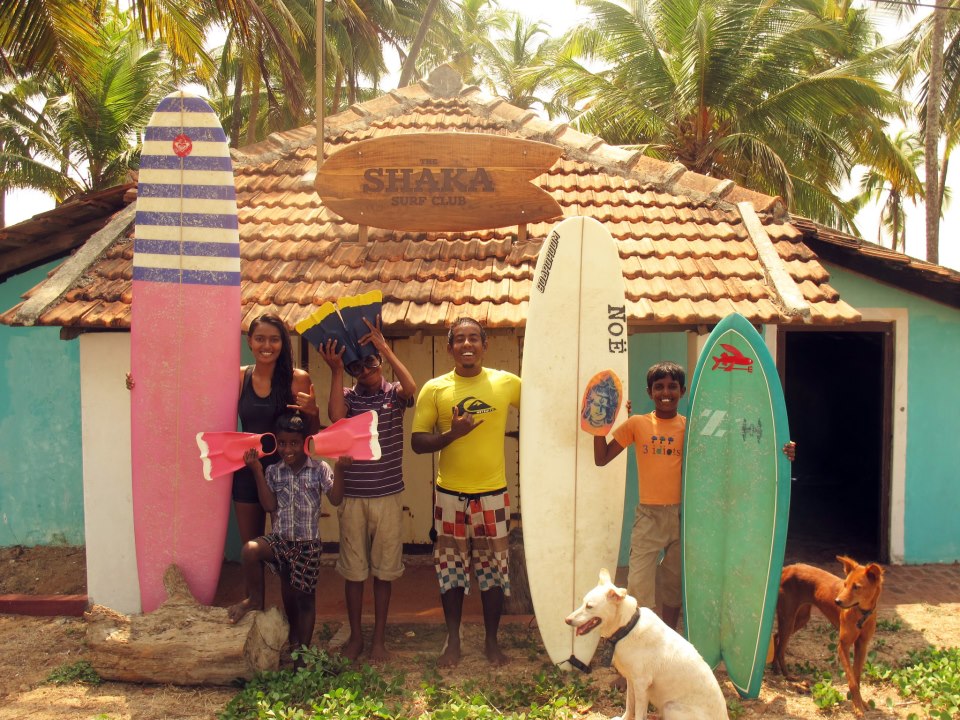
“At one time, college kids would have picnics in this area, and leave behind their garbage. The village kids at that time would not have the confidence to ask them to clean up. The biggest shift I have seen since I taught these kids how to surf and swim is that they now have the confidence to confront such people.”
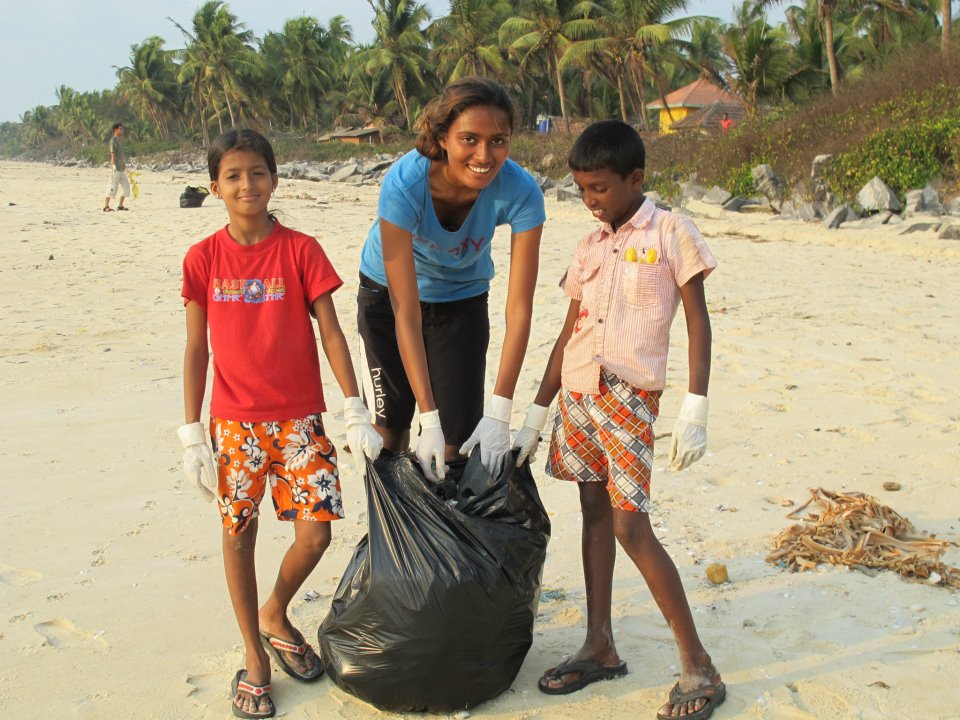
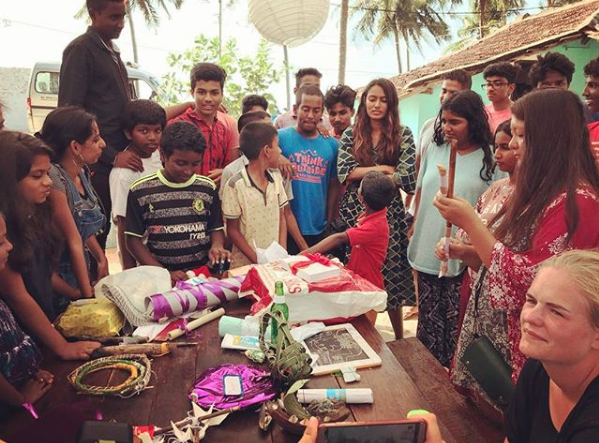
Her surf community has also run a beach cleanup that up-cycled plastic waste into a bench, aided the construction of pit latrines and toilets, and even gathered volunteers to repaint the local school and save it from shutting down due to low admissions. Along with her club, she has raised funds to send some of the kids with financial difficulties to college and is currently in the process of starting computer workshops at the school.
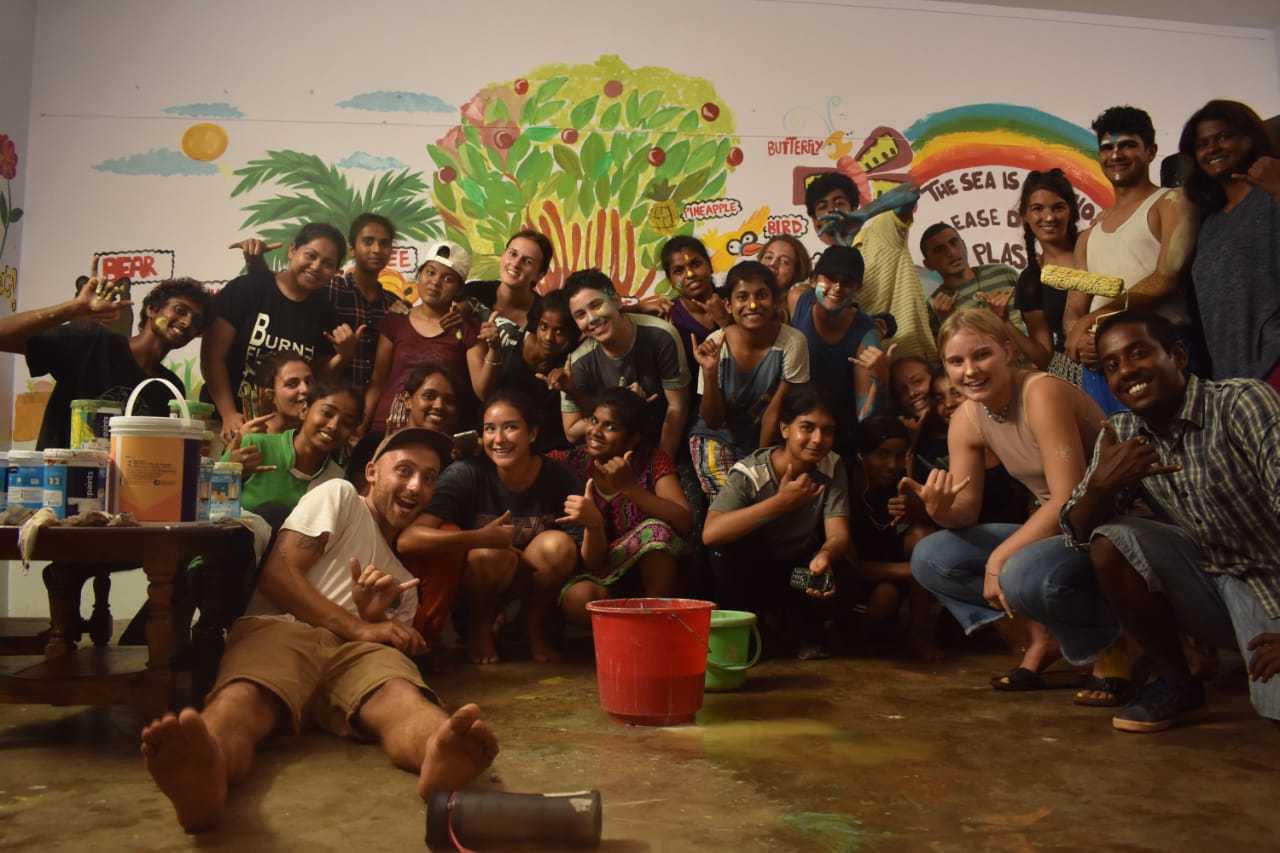
Beach, Please
But even as Malaviya’s attempts to educate the local community are paying off and the scene for women surfers has become more inclusive, she can’t say the same about the competitive surfing scene. “Earlier, surfers were often fishermen who would fix broken boards with resin from their boats and use coconut ropes because they didn’t have the proper surf equipment. Now though, the scene has become so competitive.” She feels the competitive scene came too early for the community. “I would go to a contest and it was just bad vibes,” she says, talking about how it was tough to make friends with fellow female surfers since most of them only looked at competing with her, and not aligning on the spirit of community that surfing enables. But for the free-spirited Malaviya, surfing will always be an overwhelming love for all things ocean and the giddy rush of feeling like a child again, something she wants everyone, regardless of gender, to prioritize over winning a prize.
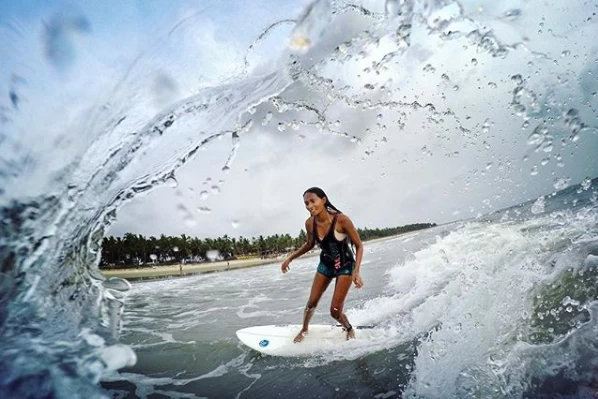
“Surfing is such a positive thing; it overcomes class and gender. It’s a big deal in a small village when a girl goes into the water. Even kids of different religions who’ve never hung out, now have a common playing field. It’s about getting more people to reconnect with nature and naturally develop an appreciation for it.”
Sign up for our newsletter to get the best of VICE delivered to your inbox daily.
Follow Shamani Joshi on Instagram.
This article originally appeared on VICE IN.